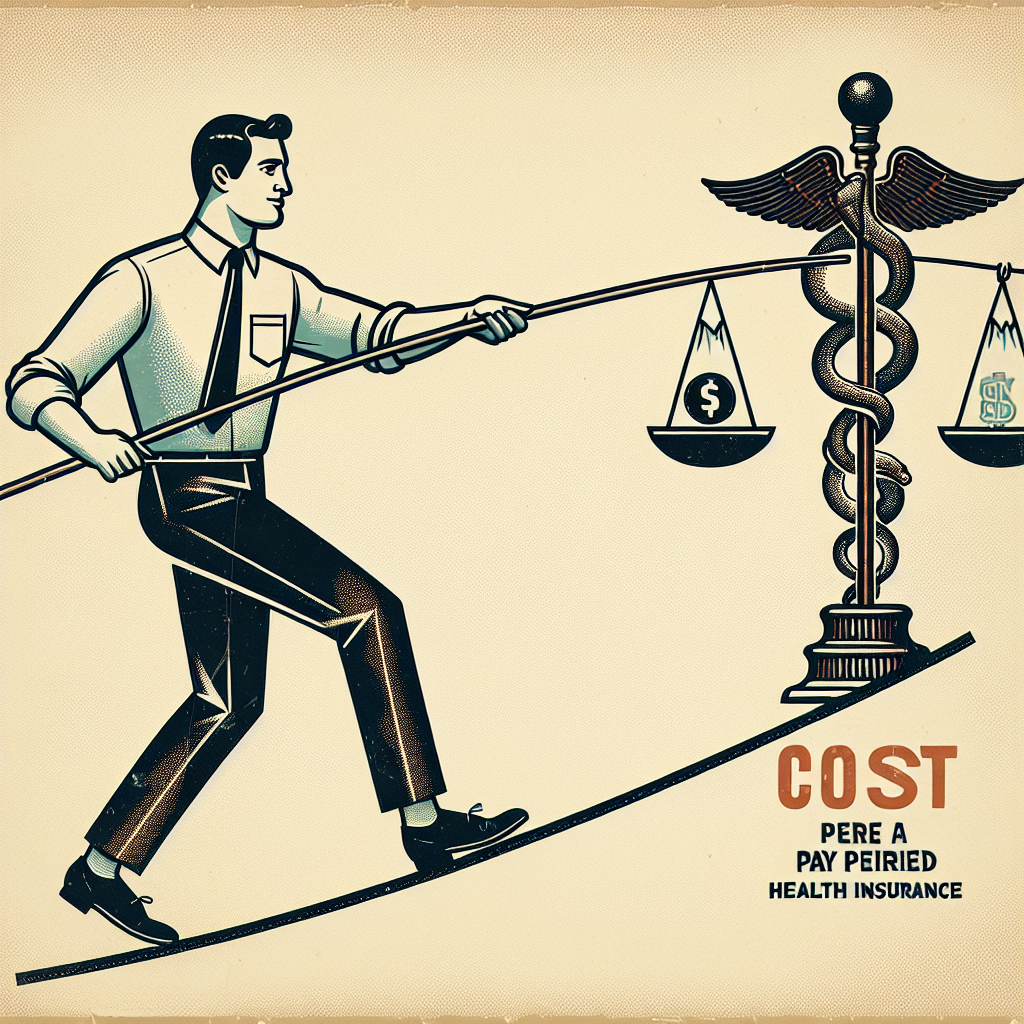Filed under Health Insurance on
Understanding Pay Period Health Insurance Costs

Understanding the intricacies of health insurance can be quite daunting, especially when it comes to deciphering the costs associated with pay periods. Health insurance is a valuable employee benefit that provides financial security in case of medical emergencies, but it's essential to grasp how costs are structured within your payroll to manage your finances effectively. This article will delve into understanding pay period health insurance costs, offering real-life examples and practical advice. By the end, you'll be equipped with the knowledge you need to navigate health insurance costs with confidence.
What are Pay Period Health Insurance Costs?
Pay period health insurance costs are expenses deducted from an employee's paycheck to cover their share of the health insurance premium. Employers typically offer various health insurance plans and pay a substantial portion of the premium. The remaining amount is deducted from the employee’s paycheck at regular intervals, aligning with the company's specific pay schedule—be it weekly, bi-weekly, or monthly.
Breaking Down the Concept
Consider an employer who offers three different health insurance plans: Plan A, Plan B, and Plan C. Each plan has distinct coverage options and costs. Suppose an employer's contribution to the health insurance premium for a bi-weekly payment structure is as follows:
- Plan A: Employer pays $200, Employee pays $50 per pay period.
- Plan B: Employer pays $180, Employee pays $70 per pay period.
- Plan C: Employer pays $210, Employee pays $40 per pay period.
In this scenario, employees choosing Plan A will see $50 deducted from their checks every two weeks for their portion of the health insurance cost. The frequency and amount of these deductions vary based on the insurance plan selected and the payment schedule.
The Importance of Understanding Your Pay Period Costs
Understanding your pay period health insurance costs is crucial for several reasons:
- Budgeting: Knowing the exact deductions helps you plan your monthly expenses better, ensuring you can manage other financial commitments effectively.
- Financial Planning: Awareness of these costs can inform decisions about benefits, retirement planning, and emergency savings.
- Emergency Preparedness: Understanding health insurance costs helps ensure you're adequately prepared for unexpected medical expenses.
Employee benefits can be complex, and sometimes employees opt out of employer-provided health insurance in favor of private plans or a spouse's coverage. Knowing your pay period costs helps make informed decisions about these options.
Factors Influencing Pay Period Health Insurance Costs
Several factors can influence the cost of health insurance premiums deducted from your pay period:
- Plan Type: PPOs, HMOs, and high-deductible plans come with varying premium costs.
- Coverage Level: Individual, employee + spouse, and family plans all differ in cost.
- Employer Contribution: Employers may cover a different percentage of premiums for different plans.
- State Regulations: Health insurance costs can be influenced by state-specific regulations and policies.
- Additional Benefits: Options such as dental, vision, or life insurance can also affect overall deductions.
Real-Life Examples
Example 1: Single Individual
Alex works for a technology company that offers a comprehensive health insurance package to its employees. Alex opts for a high-deductible health plan (HDHP) to take advantage of a Health Savings Account (HSA) and lower monthly premiums. The company pays 75% of the premium, and Alex is responsible for the remaining 25%. If the monthly premium is $400, Alex's pay period cost for a bi-weekly pay schedule is approximately $46.15, allowing for more manageable budgeting.
Example 2: Family Coverage
Jessica, a teacher, has a family to support and opts for a more expensive PPO plan offering extensive coverage. Her employer covers 60% of the premium, with Jessica covering the remaining 40%. For a monthly premium of $1,200, Jessica’s cost per pay period on a monthly schedule is $480, making it essential for her to factor this into her family's monthly budget.
Practical Advice for Managing Pay Period Health Insurance Costs
To effectively manage these costs, consider the following practical tips:
- Review Plans Annually: Your needs may change each year, so it's beneficial to evaluate health insurance options during the open enrollment period.
- Use Health Accounts: Utilize HSAs or Flexible Spending Accounts (FSAs) to save on pre-tax dollars for medical expenses.
- Understand the Fine Print: Thoroughly read all health plan information to understand coverage details and any potential out-of-pocket expenses.
- Consider Available Discounts: Some employers offer wellness incentives and discounts for participating in health programs.
- Allocate Funds Wisely: Set aside part of your paycheck to cover potential increases in insurance costs or medical emergencies.
FAQs
What happens if I switch jobs? How does it affect my pay period health insurance costs?
When switching jobs, your health insurance coverage will typically end on your last day. You'll have the option to continue your current plan through COBRA for an additional cost or enroll in your new employer's plan. Pay period health insurance costs may change based on the new employer's plan offerings and contributions.
Are pay period health insurance costs tax-deductible?
Generally, health insurance premiums paid through employer payroll deductions are made with pre-tax dollars, meaning they're not subject to federal income tax. However, premiums paid through non-employer plans or COBRA may be tax-deductible if you itemize deductions and meet certain IRS criteria.
Can I add or remove dependents outside the open enrollment period?
You can usually add or remove dependents from your health insurance plan outside of the open enrollment period if you experience a qualifying life event, such as marriage, divorce, birth, or adoption of a child. Contact your HR department for specific procedures and timelines.
How can I find out my specific pay period health insurance costs?
To find out your specific pay period health insurance costs, review your paystub or consult your employer’s HR or payroll department. They can provide you with detailed information about your insurance deductions.
What should I do if I can't afford my pay period health insurance costs?
If you're struggling to afford pay period health insurance costs, consider discussing alternative plan options with your HR department or looking into government assistance programs like Medicaid or the Children’s Health Insurance Program (CHIP). Additionally, reassess your budgeting and financial priorities to accommodate these essential expenses.





